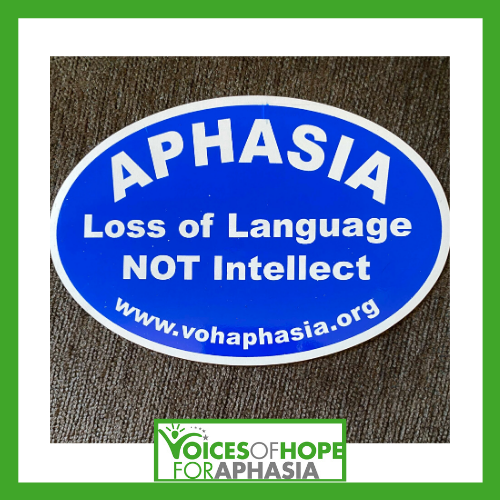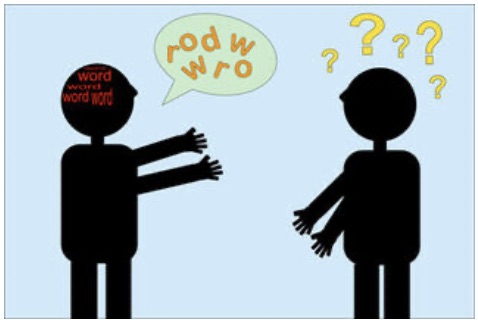By Lauren Hoadley:
You may have heard of Parkinson’s disease. You may have also heard of ALS. But have you heard of aphasia? Few people are familiar with this disorder, but aphasia is actually more common than you think. Aphasia affects more than twice as many people as Parkinson’s disease, and 150 times more people than ALS. Aphasia affects over 2 million people in the United States alone, yet many of us have no idea what aphasia is!
So what exactly is aphasia?
Aphasia is an acquired language disorder due to stroke or other brain injury.
Aphasia can affect any language modality:
- Speaking
- Understanding spoken language
- Reading
- Writing

While aphasia results in a loss of language skills, it does NOT affect intellect. It is also important to know there are many types of aphasia, so each person with aphasia will present differently. The presentation and severity of aphasia typically depends on the location and extent of brain damage.
What Is It Like To Have Aphasia?

To understand what having aphasia is like, take a minute to imagine this… You open your eyes and find yourself in a foreign country. You don’t speak the language. Someone says something to you, but you don’t understand. You try asking someone for help, but they don’t understand you.
You realize your words don’t sound the way they should – the way you want them to. You can’t find the right words.
This is aphasia. And it affects 40% of all stroke survivors, as well as individuals with traumatic brain injury.
Hear Directly From Our Members: What It’s Like to Have Aphasia
Our Founder, Mike Caputo, explains what aphasia is like for him and talks about our programs. Mike has Broca’s aphasia, which is a type of non-fluent aphasia. People with non-fluent aphasia have effortful, fragmented speech. Comprehension of spoken language is relatively intact.
Al is another one of our members. Al has a type of fluent aphasia. People with fluent aphasia can speak in sentences that resemble normal speech. They may have trouble finding the right words, so they may substitute more generic “filler” words that lack meaning, or may use words that don’t make sense.
How You Can Help
An aphasia diagnosis may be scary and isolating at first, but we have resources that can help! At Voices of Hope for Aphasia, we offer a supportive community for families affected by this disorder. With our programs, individuals affected by aphasia can stay engaged, build lifelong connections, and get back to living life! If you or a loved one is suffering from aphasia, click here to see what programs we have to offer!
To learn more about aphasia, stay tuned for our in-depth online educational workshop: “I Have Aphasia – Now What?”
The National Aphasia Association has many resources for people with aphasia and can help you find a local aphasia provider! To learn even more about aphasia and the NAA, click here!
